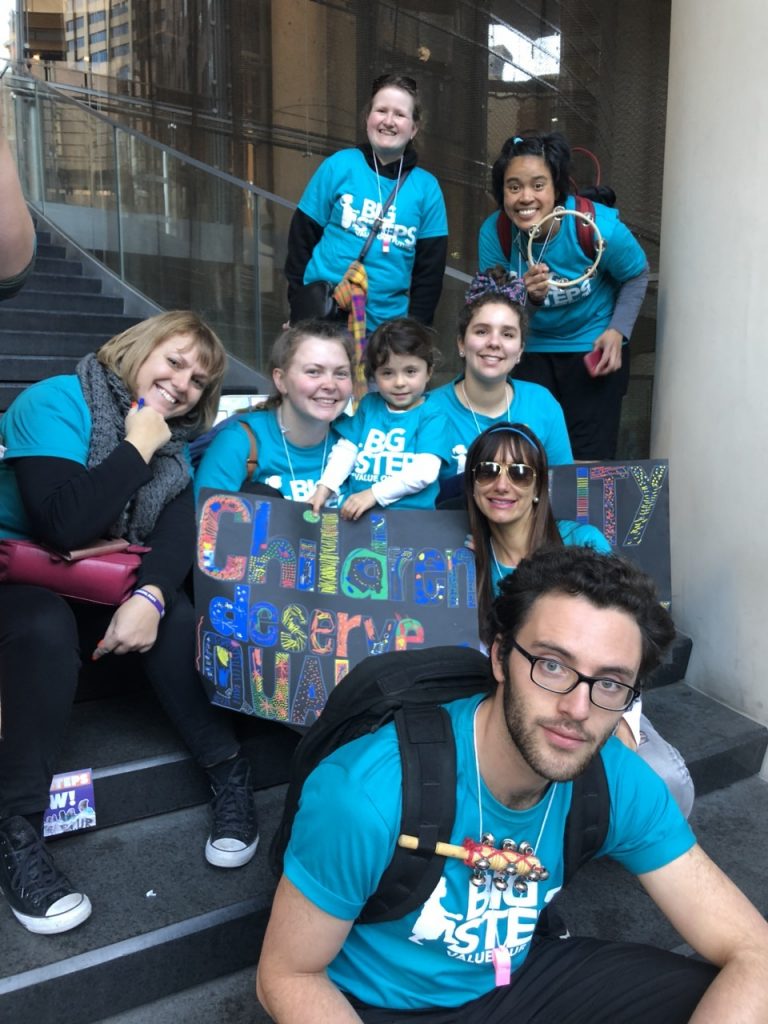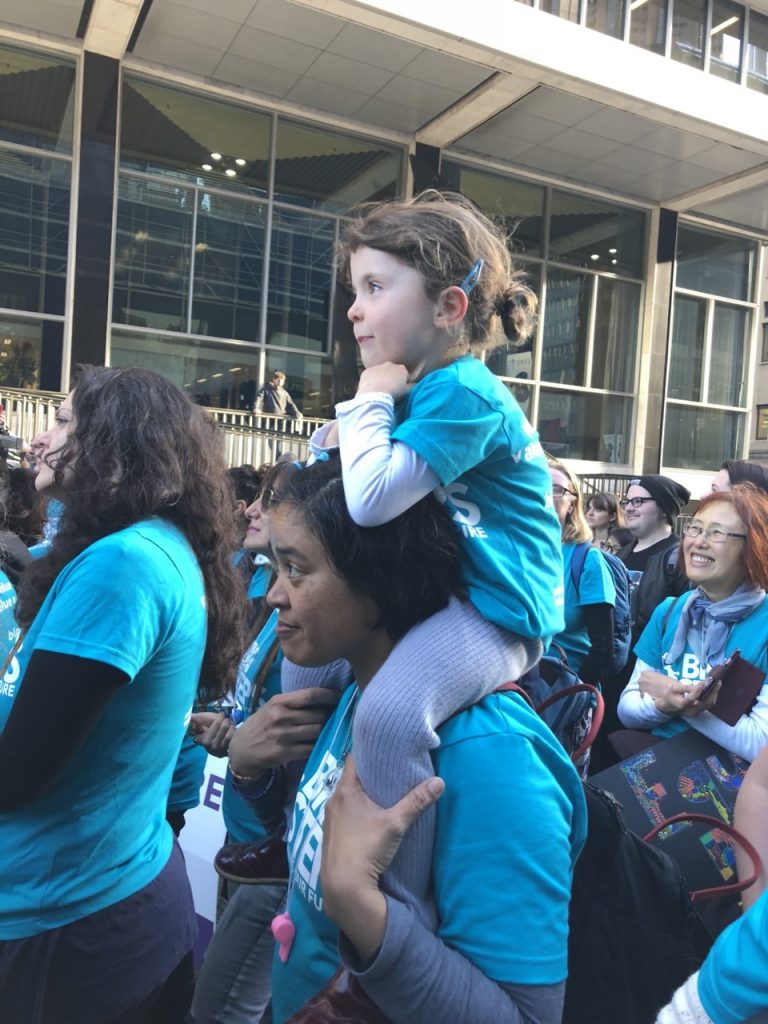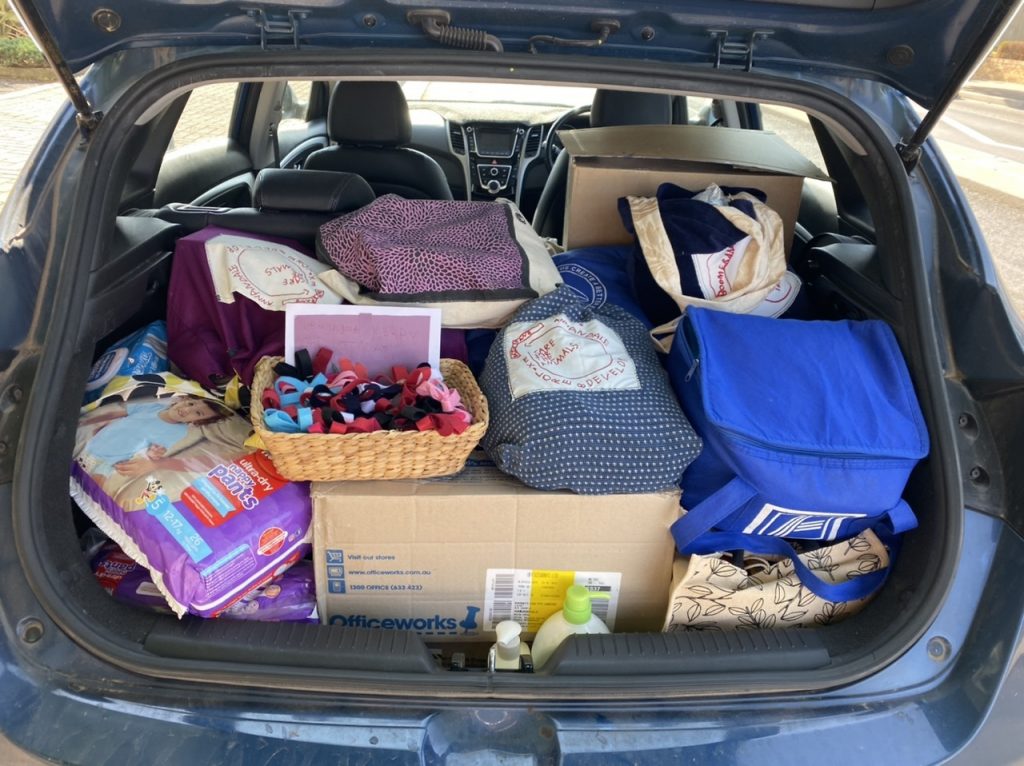By Su Garrett

A culture of activism is born from the theories and approaches that inform our practices. It is grounded in the values that inform the Explore & Develop Annandale philosophy and is fuelled by the passion of the people who enact it daily.
Karen Walrond in conversation with Brene Brown on her podcast, ‘Unlocking Us’ reminds us that the most important part of advocacy is to act, to be an activist and to act on something that aligns to your values to help others.
“Being led by your values, to do something that helps other people and makes the world brighter for other people. And the really important part of that is that you do something. The root of activism is ‘actus’, meaning to act, to do a deed, and so it requires a something, like you’re moved to do something from your values, and it can’t be just to help yourself. It may help a community of which you are a part, but it’s meant to be other-facing. It’s supposed to help other people.”
(Brene Brown, November 3, 2021).
Advocacy and activism are related but not quite the same. Advocacy is speaking out against social issues and injustice, while activism is taking action against social issues and injustice. When we teach critical thinking, we are also asking ourselves to critically examine ourselves and the structures we work within. This process uncovers unfairness and the Anti-bias Approach provides the theoretical framework to inform a practice where Social Justice and Education for Sustainability are a part of curriculum.
Explore & Develop Annandale is not afraid of activism. We firmly believe it is our role to be the microphone for children’s voices when they speak up against unfairness and help them take action for the betterment of their world.
Sarah Louise Gandolfo writes: “Advocacy, however, is not a choice that we have, but a requirement of our roles as professionals, as leaders in our sector, and as human beings, hoping for best outcomes and futures for children and communities.” (Ganolfo, 2022, p46)
Early Childhood Educators and Teachers are one of the only workforces directly working with young children on a daily basis. This gives us the ability to have a very strong influence on the development of children, particularly their identity and their confidence to advocate for themselves. We have the ability to stand up for these children as a group and also to support individual children in their daily lives.


Early Childhood Teacher and Advocate, Liam McNicholas said in his address titled ‘From Educator to Advocate – and everything in between’ at the 2018 Little People, Big Dreams Conference, “There isn’t actually anything between Educators and advocates! Educators have been advocates, are advocates, and will be advocates tomorrow and the next day. We can disagree over what advocacy is being presented by Educators, whether it’s positive, negative, or neutral – but Educators are advocates every day, whether we own that role or not.”
Essentially, advocacy and activism is mandated in our practice through Being, Belonging and Becoming; the Early Years Learning Framework for Australia. Early childhood professionals must also consider the Early Childhood Australia Code of Ethics and the United Nations Rights of the Child. These documents highlight the role of advocacy in the work of Teachers and Educators working in the sector. The relevant parts of these documents are outlined below.
Outcome 2: Children are Connected with and Contribute to their world
Children develop a sense of belonging to groups and communities and an understanding of the reciprocal rights and responsibilities necessary for active community participation
This is evident when children:
Educators promote this learning when they:
(DEEWR 2009, p29)
The ECA Code of Ethics provides a framework to support advocacy on behalf of young children. The core principles in this Code of Ethics are based on the fundamental and prized values of the profession.
They act to guide decision making in relation to ethical responsibilities. These core principles require a commitment to respect and maintain the rights and dignity of children, families, colleagues and communities.
In relation to communities, I will:
In early childhood services
In the public
(Early Childhood Australia, 2016, pp3-4)
Article 3: All organisations concerned with children should work towards what is best for each child.
Article 12: Children have the right to say what they think should happen when adults are making decisions that affect them and to have their opinions taken into account.
Article 42: Governments should make the Convention known to all parents and children.
(UNICEF, 2022)

At its heart, advocacy is change making, transforming one way of being to another. It can be a small everyday act or a huge ongoing effort that encompasses a whole community.
“The heartbeat of effective advocacy is where understanding, empathy and courage meet. Advocacy occurs when we add voice – when we speak up, write or act on behalf of ourselves, others or a cause. It fuels our purpose in life to advocate and fight for what we believe in – be it environmental rights, human rights, the right to be who you are or the rights of children.” (Semman & Slattery, 2022, p5)

A practice that allows activism to emerge in it’s curriculum design has a pedagogy of listening at it’s core. (McConaghy, 2022). Arguably this is the most important part of advocating as an Educator. Remembering that advocacy needs to be relevant to the person. Leaning into a conversation, asking questions and accepting children’s choices empowers children and allows Educators to advocate for them.
Educators need to be deliberate in their teaching strategies to employ a pedagogy of listening. Reflecting on the following questions can support Teachers and Educators to consider their own practice and whether they are providing the contexts for children to express their ideas, wants and concerns.


In early childhood services, Educators and Teachers work in collaboration. To do this successfully, services must have structural documents to guide and support practice. Most importantly the Service Philosophy must be a live document embraced by all team members.
The Explore & Develop Annandale philosophy centres around six values of: Belonging, Play, Inclusion, Knowledge, Wonder and Trust. It is reflected in all decisions we make from service management to curriculum development. It is embedded in our documentation, is the starting point for critical reflection and is made visible through our practices. It has been developed over time and is reviewed by the whole team annually. It gives all Educators and children space to have a voice and enables the team to work together, trust one another and creates a culture of critical thinking where multiple perspectives are honoured.

Critical thinking as a team enables these open conversations to be held with children. A culture of critical thinking with children through a democratic classroom, gives space for bigger issues to be explored together, for children’s voices to be listened to, and courses of action to be created. Explore & Develop Annandale has invested in professional development for their whole team around current issues, particularly learning about Aboriginal and Torres Strait Islander perspectives, Education for Sustainability and the Anti-bias Approach to provide Educators with knowledge with which to advocate with and for children.
When looking at bigger issues to advocate for, the best place to start is local and take a responsive approach. What is important to the people in your service and your local area? These issues will change and evolve over time as the children and families change and the community changes. At times, bigger worldwide issues will be relevant to your community.
Here are some of the issues we have advocated for and taken action on:
Remember you will always get greater buy in when the issues are relevant to the people advocating.
Brown, B. (Host). (2021, November 3). The Lightmaker’s Manifesto, Part 1 of 2 [Audio podcast episode]. In Unlocking us. Spotify.
DEEWR (2009). Being, Belonging and Becoming: The Early Years Learning Framework for Australia. Barwon, ACT: Commonwealth of Australia.
Early Childhood Australia (2016). Code of Ethics. Retrieved from file:///C:/Users/Explore&DevelopAnnan/Downloads/ECA-Code-of-Ethics.pdf
Gandolfo. S L, (2022). The Power and Place of Advocacy, Pedagogy Plus July/August Issue 12 page 46-47.
McConaghy, R. (2022). Advocato on Toast, Pedagogy Plus July/August Issue 12 page 52-53.
McNicholas, L. (2018). “The policy and politics of Australian early learning”. [Blog]. Educator To Advocate (And Everything In Between) 26 November, 2018.. Retrieved from https://liammcnicholas.com/2018/11/26/from-educator-to-advocate-and-everything-in-between/#more-2297
Old Parliament House Museum of Australian Democracy. (2022). PlayUP [website] retrieved from https://www.moadoph.gov.au/exhibitions/playup/